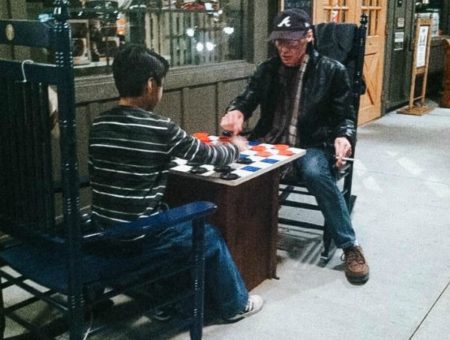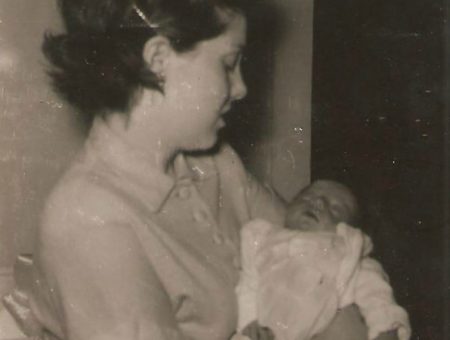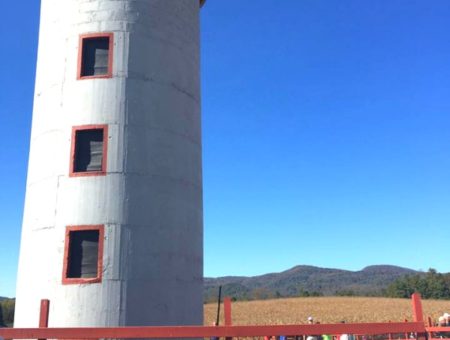Much of history is shrouded in the mists of time, full of legends and myths that can create misunderstandings, especially when it comes to family history, which in most instances is passed from generation to generation by word of mouth.
A case in point is the article I wrote about one of my ancestors from the Hendersonville area who supposedly buried a kettle of gold in the Flat Rock area, still yet to be discovered. And the tale is still told that he haunts the area, either guarding his stash or looking for it himself. Such apocryphal tales can make digging for the facts a daunting task. But then…..then there are occasions that have been documented as pure fact that are cut and dry and cannot be denied, despite the fact that said history could be considered a blemish on the family name.
Such a tale is that of my Great-Great-Great Grandfather, Neely Tweed, from the lineage of my father’s mother. Neely was, by definition, a murderer. There is, however, a story to tell that puts it all in context and basically removes the blight from the family tree, for Neely was truly a fine, upstanding man, a servant to the people of his community, and his legacy lives on to this day because his actions, true as they are documented, also made him the stuff of legend.
But the saga begins even earlier than Neely, going back to 1792 when his Grandfather, William Tweed – my great times 5 grandfather – made the perilous journey from Dublin, Ireland, to America, landing in Charleston, SC. Accompanying him was his wife, son Jimmy and daughter Isabel, as well as Peggy Neely, a young woman who was with child out of wedlock. She gave birth at sea to a daughter, Rachel. Ironically, later on, Jimmy Tweed married Rachel Neely and they moved from South Carolina to Cane River, NC, in Yancy County, then relocated to White Rock in what is now Madison County, NC. They had six sons, the first one being Neely, born in 1816, his given name being the maiden name of his mother.
On May 13, 1861, shortly after the first shots of the war were fired on Fort Sumter, there was a statewide referendum held to elect delegates to go to Raleigh and vote on whether North Carolina would secede from the Union to join the Confederate States, or stay in the Union. Back in that day, any election was known to be a time that good ol’ moonshine likker was freely passed around. Even my Great-Grandfather, Robert Maxwell Reese, an upstanding member of his church, a deacon and all, was known to come home from the polls with a spirit other than that of God wafting from his mouth, much to the chagrin of his Godly wife. And on this day, not only was the moonshine flowing freely, but tensions were running high and total chaos ruled in the streets.
By this time, Neely was in his mid-40’s, a family man with eleven children with his wife Lucinda expecting number twelve, and had made his mark by becoming the first Clerk of Superior Court in Madison County as well as a Justice of the Peace. During his official duties, there had been times he and County Sheriff Ransom Merrill had not seen eye-to-eye. And on this chaotic day, there was even more reason for a disagreement.
Merrill was a staunch secessionist, as opposed to Neely and most of the other Tweeds, who being simple, non-slave-owning mountain farmers felt that they had no dog in this fight and were expected to vote pro-Union. With all the arguing and drinking going on in the town square, Merrill, a hard drinker himself, chose this time to approach Neely and his 21-year-old son Elisha to espouse his cause and question their intentions. Words were exchanged leading the sheriff to pull his gun and shoot, wounding Elisha in the arm and side. He then ran down the street, entering a house and going to the second floor to a window overlooking the street. But he should have been watching his back because Neely had chased him, and upon entering the room where the sheriff was leaning out the window yelling, “Come up here all you Black Republicans and take a shot about with me!” Neely did just that and shot him dead.
Knowing the dire consequences facing him, Neely fled back to his home in White Rock, hiding out for almost a year. A $400 Dollar reward for his capture was posted. Unfortunately, his brother Joshua, as is told in family oral history, was…”repeatedly hung by the neck. Strung up then let down by bushwhackers.”; bushwhackers most likely being the home guard as depicted in the movie Cold Mountain, or just opportunists seeking information of Neely’s whereabouts so they could claim the reward. But after not getting the information they wanted, they strung him up one last time for good. Events such as this and Neely’s shooting of the sheriff, as well as the infamous Shelton Laurel Massacre led to this county being called Bloody Madison.
So in March of 1862, to escape the heat and danger of capture, Neely cut and run and headed for Kentucky where his brothers Abner Grainger (A.G.) and John, along with his son Elisha, recovered from the near fatal wounds inflicted by Sheriff Ransom, had joined the 4th Regiment, Tennessee Infantry. On April 15, 1862, at Camp Garber in Flat Lick, Kentucky, Neely enlisted into the same unit as his brothers and son, only to die six days later of yellow fever, on the date and at the time he predicted his death would occur, according to family history. Of all the facts of this tale, his telling of this boding is the only one that smacks of myth or legend, for many members of the Tweed family wonder at that tale.
Elisha buried his father in an unmarked grave and the war went on. Of Neely’s other brothers, John was detached from his unit for Special Service to make raids inside the enemy’s lines and destroy bridges and bring out recruits from Madison County. Thomas joined the Union Army, fought and was captured and held for a year before release, but died within a month due to malnutrition and the beatings he received while imprisoned. Reuben sat out the war, only to have his sons fight for the Confederacy. Three of six, Neely, Joshua and Thomas, died due to war related causes, while John, A.G. and Reuben lived to ripe old ages and saw the turn of the century. Ironically, A.G. became the sheriff of Madison County, and like Andy Taylor of Mayberry, he never carried a gun. When questioned why he went unarmed, he replied, “Because I can have a man whipped before he can get a gun out of his belt.” And as for Neely’s Wife, Lucinda, she lived till she was 92, dying after breaking her back staking out a cow.
Having known this saga for years, it was only by happenstance that I got to chase down a bit of history. This past May, my stepson asked me to drive him to Kentucky to pick up a vehicle he was buying. The first thing that popped into my mind was Flat Lick, Kentucky, and on checking the road atlas, I found that it was near our destination. Voila! And it was also the opportunity to introduce my new family to that great American institution: ROAD TRIP! So off we went, in search of the past.
It was a perfect spring day and the drive into Tennessee where the new I-26 had been cut through the mountains was a magnificent sight. And once in Kentucky, traveling on the old two lane roads cut through the rolling hills, it being coal country, we could see the black veins of ore coursing through the land. Once finished with my stepson’s business it was on to Flat Lick.
We found it to be quintessential small-town America; one red light, a small elementary school and a post office being the highlights. I had vague directions to the location of Camp Garber but had no luck in locating it, and surprisingly, none of the locals had ever heard of it. But by logic and deduction, I determined we’d driven right by, it now being fenced in farm land and pasture, under which lies an untold number of Civil War soldiers, forever to be unmarked and unknown; except to me, and a few others, that is.
The drive home was the perfect ending to a perfect day, coming back through Knoxville and the beautiful Pigeon River Gorge. My wife was amazed with the highways and interstate system as compared to the roads in the Philippines, her home country, and she was in awe of our majestic mountains.
But other road trips are on the horizon in this quest. There’s yet much more of the Tweed legacy to be found right here in the mountains of Western North Carolina. Neely’s parents, James and Rachel, are buried in a family graveyard in Madison County, as well as his brother Thomas. And his wife Lucinda is buried at Tweed Chapel Cemetery. The location of Sheriff Ransom Merrill’s grave is known, and the house in which Neely shot the sheriff still stands on Main Street in Marshal. And just for the sake of myth and legend, it’s told that the sheriff’s ghost still looks out that window, keeping its eyes on the town in which he failed his duty of keeping order in on the day of his death. So what better way to acknowledge this 150th anniversary of the Civil War than to load up and hit the road again in search of family legacy, right in my own backyard?











This is fascinating! Neely’s brother Thomas was my 4th-great-grandfather. I’ve been doing research on the Tweeds recently and it was so interesting hearing this story (I’d only heard that he was a Union sympathizer, not any of the rest of it!). Do you know what part of Ireland the Tweeds came from?
Neely shot the sheriff but he didn’t shoot no deputy.
James and Rachel were my 5th great grandparents. This was great information for my ancestral research. Thanks and God Bless.
James & Rachel are my 3x great grandparents. My great grandfather and mother were Major Gosnell & Martha Tweed Gosnell. This is a very interesting part of the family story. I’ve only recently joined my mom in genealogy work (after my ancestrydna results came back.). I’ve only been able to go back as far as William, thanks to your blog. Do you happen to have more information?
Thank you so much!
Hi,
My name is Tim Tweed and Neely Tweed was my great great grandfather (I think, possibly further back in my lineage) I just wanted to thank you for sharing this story.